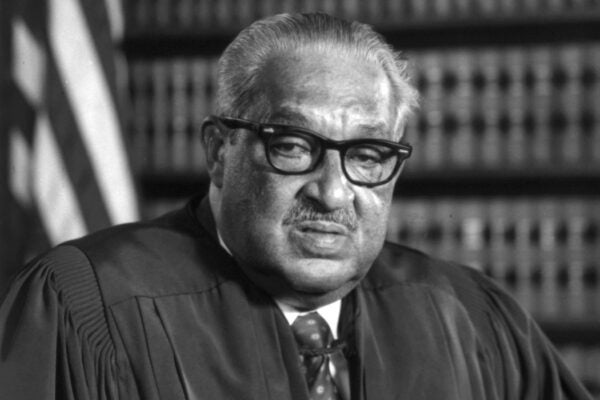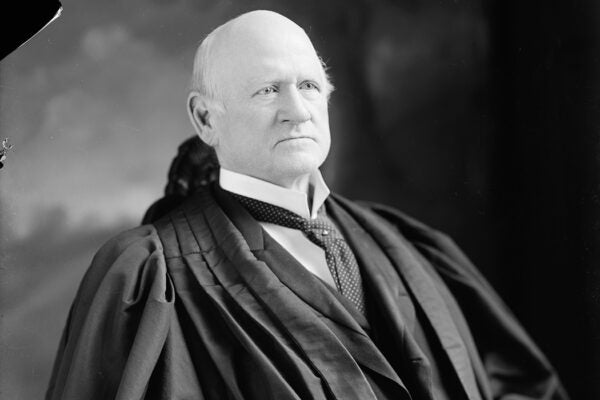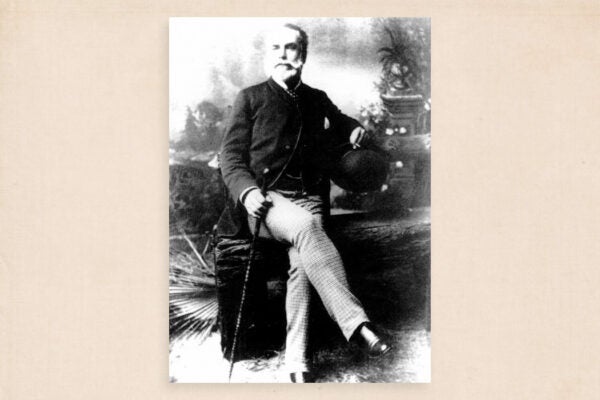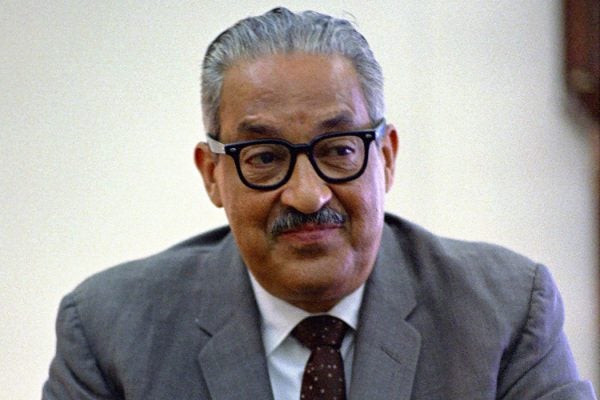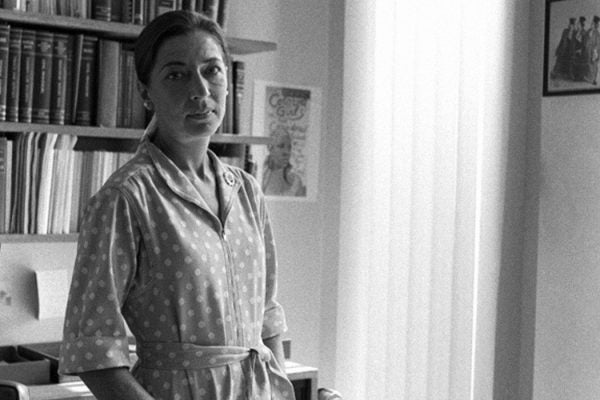Marbury v. Madison: Annotated
Justice John Marshall’s ruling on Marbury v. Madison gave the courts the right to declare acts and laws of the legislative and executive branches unconstitutional.
Thurgood Marshall
In a speech marking the bicentennial of the US Constitution, Marshall argued that its framers intentionally inscribed slavery into the American economy.
The Great Dissenter’s Complications
Supreme Court Justice John Marshall Harlan I argued the US Constitution was color-blind. He also believed it stood in defense of white supremacy.
Birth of the Corporate Person
The defining of corporations as legal “persons” entitled to Fourteenth Amendment rights got a leg up from the fight over a California anti-Chinese immigrant law.
Brown v. Board of Education: Annotated
The 1954 Supreme Court decision, based on the Fourteenth Amendment to the US Constitution, declared that “separate but equal” has no place in education.
Drafting a Constitution: Thurgood Marshall in Kenya
In 1960, before his nomination as a US Supreme Court justice, Thurgood Marshall helped frame the constitution that would serve a new country.
Religious Identity and Supreme Court Justices
If successful, Amy Coney Barrett would become the 7th current Supreme Court justice to be raised a Catholic, and the sixth conservative Christian.
Ruth Bader Ginsburg’s Radical Project Isn’t Finished
A fiery advocate against gender discrimination, Ruth Bader Ginsburg’s radicalism reveals itself in her argument for the Equal Rights Amendment.
Birthright Citizenship Basics
Birthright citizenship, which holds that individuals are citizens of the nation in which they are born, was codified with the 14th Amendment in 1868.
When FDR Tried to Pack the Courts
Pushing New Deal legislation, FDR proposed that extra justices should be added to the Supreme Court, one for every sitting justice over the age of seventy.

